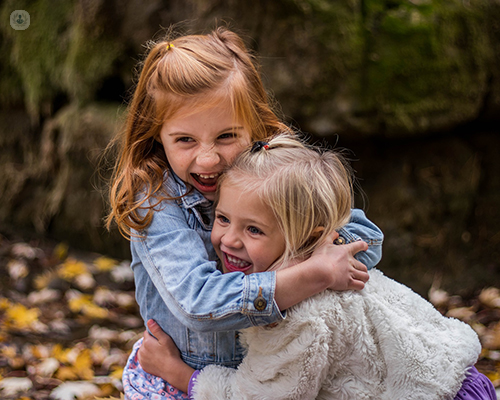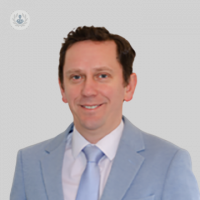Paediatric cerebral palsy: an expert's guide
Written by:Paediatric cerebral palsy is a disease that can be debilitating in severe cases. In our latest online interview, renowned paediatric orthopaedic surgeon Mr Darius Rad explains this condition in detail, offering his insight into the symptoms, diagnosis and management of paediatric cerebral palsy.

What is paediatric cerebral palsy?
Cerebral palsy affects quite a lot of children, up to 4 in every 1000 births. Cerebral palsy is usually diagnosed at birth and this is non-progressive which means it doesn't get worse over time. However, the implications of cerebral palsy on children’s muscles and bone development does get potentially worse as they grow up.
If you suffer from cerebral palsy, the stimuli that come through the neurons down to the muscle and cause our bones to move, can be affected. The tone, which is the intensity of the muscle can be increased due to the increased signals coming from the brain. As the muscle doesn’t relax, the condition can affect the function of the muscle. It can lead to contractures and deformities, that are usually treated by a physiotherapist, a neurologist or an orthopaedic surgeon.
What are the early signs of cerebral palsy in a child?
Normally, babies start to learn to stand and walk by 18 months. If you see that your child is slightly behind in this, or is behind in interacting with you as a parent, please ask your GP for advice and he can help with diagnosing the cause of this.
How is paediatric cerebral palsy diagnosed?
Cerebral palsy is diagnosed through a multi-disciplinary team approach. The GP will usually recognise some of the symptoms and refer the patient to a paediatrician. Paediatricians usually have the expertise to diagnose cerebral palsy, or to suspect it at least. The patient can then be referred to a specialist centre, where paediatric neurologists who have extensive experience in diagnosing cerebral palsy can see the patient and make plans for the future.

How does cerebral palsy impact a child’s quality of life?
In order to quantify how much cerebral palsy affects the quality of life of children, we would need to look at the gross motor function classification system (GMFCS).
Children are affected on a scale of one to five. A one is very little involvement and a five is severe involvement. We would need to employ this classification system to know how much the child will be affected in terms of their function and integration into general life.
It is important to have a very well-established set of goals in the first meeting and to have a multi-disciplinary approach to the management of this child. This involves school physiotherapists, home physiotherapists, occupational therapy and ultimately paediatric support when needed. Treatment from a paediatric orthopaedic surgeon with cerebral palsy expertise is only needed as a last resort.
What is the survival rate of cerebral palsy?
Cerebral palsy, in many cases and especially in the less severe cases is a condition that allows the child to live normally and function well. They usually have no issues in terms of life expectancy. In extremely severe cases, life expectancy can sometimes be affected because of other issues that can be present simultaneously such as breathing conditions. However, this is an extreme situation only and should not be the first thing that the parent thinks of.
Mr Darius Rad is a highly-renowned paediatric orthopaedic surgeon based in Southampton. You can book a consultation with Mr Rad today via his Top Doctors profile.



